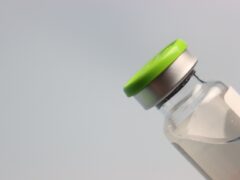What is vomiting and diarrhea?
Vomiting (throwing up) and diarrhea (watery bowel movements) are common symptoms of gastroenteritis. Gastroenteritis is the inflammation and irritation of the stomach and intestines. Vomiting and diarrhea at the same time can be harmful, because they can cause dehydration. Dehydration occurs when you lose too much fluid. Young children and the elderly can become dehydrated quickly, but dehydration can occur at any age.
Symptoms
Vomiting and diarrhea are usually considered symptoms themselves. You will know you are vomiting when you begin throwing up. You will know you have diarrhea when you begin having watery bowel movements.
The main result or sign of both vomiting and diarrhea is dehydration. It can be hard to tell if a person is dehydrated. Usually, by the time a person has signs of dehydration, they have been dehydrated for a while. If you notice any of the following signs of dehydration, especially in babies, children, and the elderly, talk to your doctor. If dehydration is severe, your loved one may need to be given fluids intravenously (by vein through an IV tube) to replace fluids lost through vomiting or diarrhea.
Signs of dehydration include:
- Little or lack of urine, or urine that is darker than usual.
- Urinating less frequently than usual (fewer than 6 wet diapers a day for infants and 8 hours or more without urinating for children).
- Thirst (babies may show thirst by crying, being irritable and eager to drink when something is offered).
- Irritability.
- Not eating as well as usual.
- Weight loss.
- Dry mouth.
- No tears when crying.
- In babies who are younger than 18 months old, sunken soft spots on the top of their heads.
- Skin that isn’t as springy or elastic as usual.
- Sleepiness.
What causes vomiting and diarrhea?
Vomiting and diarrhea can be caused by a number of things. These include viruses, bacteria, parasites, certain medicines, or certain medical conditions. Foods that are hard to digest (such as too many sweets) and undercooked (raw or partially raw) meat or fish can also cause vomiting and diarrhea.
How are vomiting and diarrhea diagnosed?
Vomiting and diarrhea can be diagnosed at home. Neither condition requires a trip to the doctor. However, call your doctor if the vomiting and diarrhea don’t seem to be getting better, or if the person who is vomiting and/or has diarrhea:
- Is younger than 6 months old.
- Is older than 6 months old and has a fever higher than 101.4°F.
- Has signs of dehydration (see box above).
- Has been vomiting longer than 8 hours or is vomiting with great force.
- Has blood in his or her stools.
- Has blood in his or her vomit.
- Has not urinated in 8 hours.
- Might have swallowed something that could be poisonous.
- Has a stiff neck or bad headache.
- Is listless or unusually sleepy.
- Has had abdominal pain for more than 2 hours.
Can vomiting and diarrhea be prevented or avoided?
Avoiding foods that might be undercooked or raw can prevent vomiting and diarrhea. Since it can be caused by many things, though, it may not always be possible to avoid.
Vomiting and diarrhea treatment
Anyone who has had several bouts of vomiting or diarrhea will need to replace lost fluids and electrolytes.
- For babies: If you are breastfeeding, continue to give your baby breast milk. Breast milk has fluids and electrolytes needed to prevent dehydration. Your doctor may also want you to give your baby an oral rehydration solution (ORS). If you feed your baby formula, try switching to one that is lactose free while your baby is sick. Lactose can make diarrhea worse. Your doctor may also suggest switching from formula to an ORS for 12 to 24 hours, and then switching back.
- For toddlers and young children: Use an ORS, which contains the right mix of salt, sugar, potassium, and other nutrients to help replace lost body fluids. Children older than 1 year may also have clear soups, clear sodas, or juice mixed 50-50 with water to help prevent dehydration. You should avoid giving your child plain water and soft drinks. Water alone does not contain enough salt and nutrients to help with dehydration. Soft drinks are typically very high in sugar and can irritate your child’s stomach.
- For adults and seniors: To replace the fluids lost from vomiting and diarrhea, adults and seniors should try to drink at least seven eight-ounce glasses of water each day. Seniors may also use ORS or liquid meal replacements to help replace lost body fluids.
What is an ORS?
An oral rehydration solution, or ORS, is a great way to replace fluids and nutrients lost through vomiting and diarrhea. An ORS is safe for babies, children, and adults. An ORS can come in several forms, including a powder that you mix with water, a liquid that is already mixed, and as frozen popsicles. You can purchase these at most grocery stores and drugstores.
To use an ORS for vomiting, try giving small amounts of ORS often, such as 1 teaspoonful every minute. If the person is able to keep the drink down, slowly increase how much you give. If the person vomits after you give the ORS, wait 30 to 60 minutes after the last time he or she vomited, and then give him or her a few sips of an ORS. Small amounts every few minutes may stay down better than a large amount all at once. When the person stops vomiting, you may increase how much of the ORS you give each time and add clear broths or clear sodas. Remember, small amounts are less likely to cause an upset stomach. If a person only has diarrhea and isn’t vomiting, he or she may have an ORS and other liquids as needed. Your doctor may ask you to keep track of how much the child or senior drinks. You can use a dropper, a spoon, or a measuring cup to help you keep track.
Living with vomiting and diarrhea
Vomiting and diarrhea usually don’t last long. If it’s caused by an infection, vomiting and diarrhea are a way for the body to get rid of the infection. Giving medicines that stop vomiting and diarrhea may actually interfere with the body’s efforts to heal. Antibiotics are usually not necessary either. Talk to your family doctor if you or a loved one is frequently vomiting or having diarrhea.




